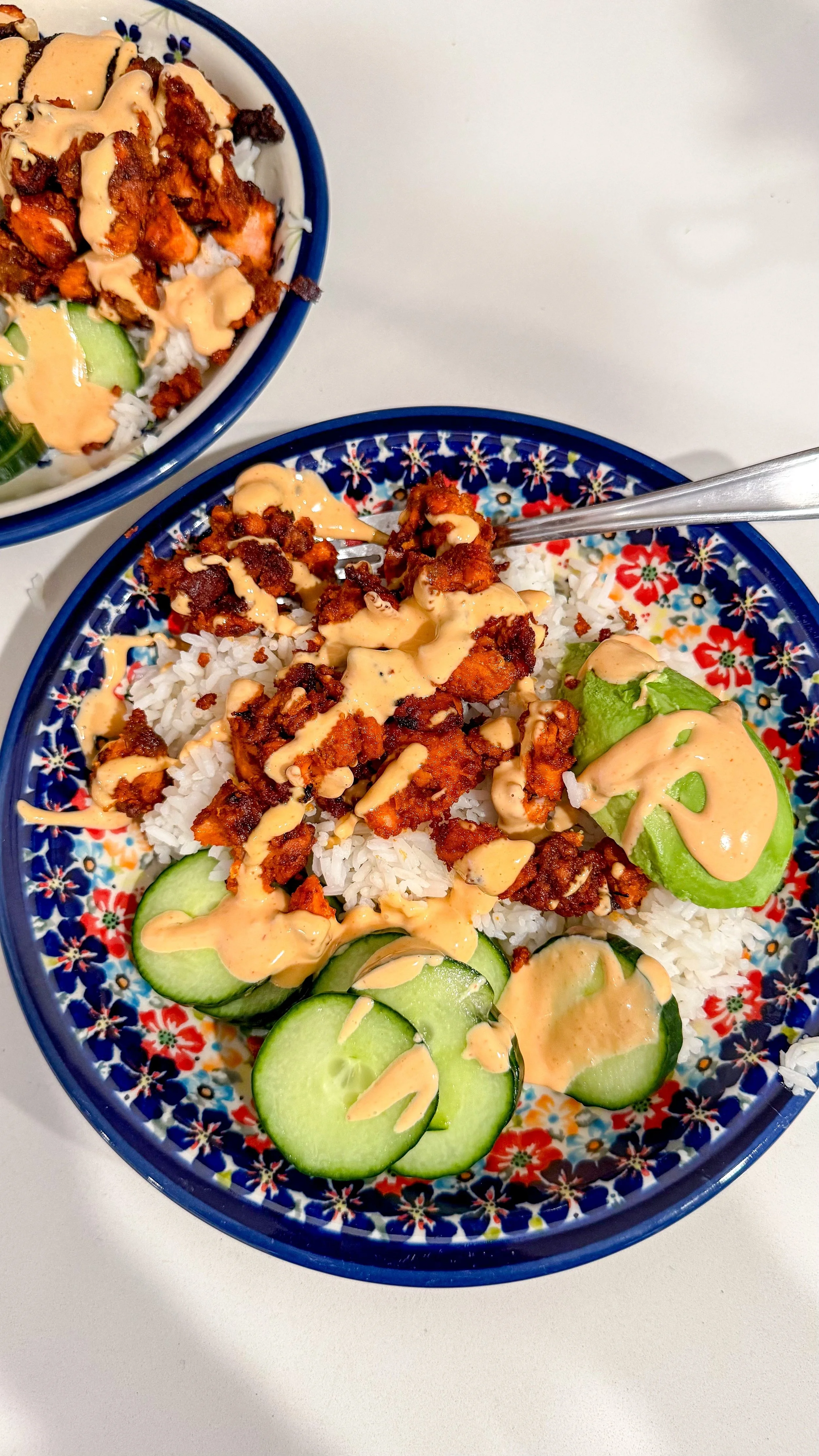Ways We Ensure Meals Are Gluten-Free
This year, 2025, marks 15 years since I was diagnosed with a wheat allergy. Because of that, I eat gluten-free and am always looking for good gluten-free options for me, my son who is also gluten-free and my mom who eats gluten-free and is often with us.
Ways We Ensure Meals Are Gluten-Free | Diagnosis
When I was an infant, I had terrible acid reflux, crying, screaming, constantly throwing up. The doctors first thought I had asthma, but my mom couldn't shake that that wasn't it. As I got older, I encountered a whole lot of other issues. I ran into constipation issues as a kid which my pediatrician dismissed as me just not wanting to use the bathroom and I was just prescribed laxatives on a regular basis. I also constantly had rashes especially once I hit puberty. I started getting rashes from any jewelry I was wearing that was not 14 karat gold or sterling silver at a minimum and hives absolutely everywhere were a common occurrence. Still, nobody thought to test me for any kind of food allergy or actually any allergy in general. At about 12 years old, I started getting cluster migraines. I would have to take a daily migraine medicine as well as a rescue medicine when the migraines came on. When I got a migraine, I would take the Imitrex, and then if the Imatrex did not work, I as a 12-year-old was prescribed Vicodin. Yes, at 12 years old I was given an opiate. Luckily, I didn't like how it made me feel so I didn't continue taking it, but it still blows my mind I WAS prescribed it. My mom and I tried going off of sugar for a year to see if that helped with the migraines. I had MRIs, CT scans, and full blood workups with no explanation to why I was getting the migraines. On top of the migraines, I would have crippling pain and bloating after every meal. I also would have intense weight fluctuations. So, I would gain a lot of weight, retain it, and then suddenly lose a bunch of weight.
After I was diagnosed my allergist explained the wheat would build up over time and my body didn't know how to react to the wheat. I would retain a bunch of water weight and then I would let it go. There was a lot of pain after eating and a lot of bloating. As I got older I even attempted to remove dairy from my diet which did absolutely nothing. Then, during Christmas break in 2010, my mom was walking by her allergist and had the thought that maybe I had a food allergy. At the appointment, I did a full prick testing panel and almost immediately reacted to the wheat. Only wheat though, not any other grain. Honestly, this knowledge changed my life! Once I took out wheat completely from my diet almost all of my symptoms dissipated. I now am off migraine medicines and only get about 2 a year that can be resolved quickly with an Excedrin. I don't get stomach pains after eating anymore and have a healthy digestive system, and my skin, while still sensitive, doesn't have the intense and constant reactions I used to have. Fifteen years later, when I do have a wheat reaction, I have an almost immediate migraine, crippling stomach pains that rival giving birth and my digestive system is completely destroyed. I also notice intense brain fog, my ADHD medicines become almost useless, and I get full body hives.
When my daughter was born, I kept a super close eye on her because there are other women in my family who have either an intolerance or an allergy to gluten so she had a higher probability of having an allergy. She is autistic and has ARFID so having to restrict her already small amount of preferred foods would have been a struggle. It was a big relief when she was tested and showed no signs of a wheat allergy. After my son started eating solids as a baby, I noticed he seemed to be in pain and was having digestive issues whenever I gave him something with wheat in it. I consulted with his pediatrician and told her the family history, and she agreed that he needs to stay off of gluten, especially considering the family history. My mom went on the sugar-free diet when I was in middle school and it helped her body to get well and feel good. After my diagnosis, she realized gluten/wheat had been significantly impacting her, but she wasn't showing any serious reactions in the tests. She noticed her body felt a lot better without gluten/wheat. A few years later, she discovered she has a pretty bad mold allergy. It turns out a lot of grains contain traces of mold in them because of how they're stored after they're harvested so it makes sense she feels better when not exposed to that. Since all three of us are strictly gluten-free, we've come up with systems that make our diet restrictions in our homes easier.
Ways We Ensure Meals Are Gluten-Free | Cook First and Separately
In my house, we generally just eat gluten-free all around. When my husband and I first got married, I'd only been diagnosed for about two years so I was actually making separate food for us. For example, I would make gluten-free pasta for me and regular pasta for him. However, I noticed he was eating my leftovers, and didn't really care about the difference so to save time and money, I just made everything gluten-free. We eat a lot of rice, potatoes, meats, veggies, fruits, and other things that are naturally gluten-free, but if I am making something with a grain, I just automatically make it gluten-free. My daughter, who is not gluten-free, will often also eat gluten-free things. She really enjoys a our favorite gluten-free items from Trader Joe's, which I don't mind because that means less chance of contamination in my house.
We normally have big family gatherings at my mom's house. The majority of the extended family is not gluten-free so instead of forcing them to eat gluten-free, we make separate things by making the gluten-free items first. For example, we use separate pots and strainers for pasta and different utensils for stirring and serving. This ensures there is no cross contamination and no one goes home sick. When we have a big BBQ, my dad will put the regular buns and burgers on a shelf on the grill and heat up buns for my mom and myself in the toaster oven in her house.
Ways We Ensure Meals Are Gluten-Free | Store Separately
Anything that is gluten-free gets a separate plate and is strategically placed to ensure it doesn't come near the regular items, unless they are inherently gluten-free like veggies or fruit. We also make sure gluten-free options have their own separate utensils stored in a separate part of the kitchen so we know they all stay uncontaminated. We normally move all the gluten-free stuff to a separate part of the kitchen. This way, everybody knows all the gluten-free stuff is on the separate counter and nobody accidentally cross contaminates anything.
We always use utensils when using condiments. My parents have two separate butter dishes so when spreading butter on toast, there is no cross continuation. So for a piece of toast, you would spread your butter from the designated dish then use a separate spoon to plop it onto your bread and then use your original knife to spread it. That way your spreading utensil doesn't touch the food. If it does touch the condiment we get a new one. It's just not worth wrecking our bodies with gluten reactions for days on the off chance we won't have a severe reaction.
Ways We Ensure Meals Are Gluten-Free | Eat Before Events
If I go to a family or friend's house that I know is going to have safe food options, I don't worry about eating before. However, if I'm going to a school, church or community event, I am going to eat beforehand because I have no way of ensuring there will be no cross-contamination, and it is not worth it to me to risk it. I've done it way too many times, and at this point I'm past it. I always appreciate it when people do provide gluten-free, but I definitely don't expect it. It's a lot easier when I'm going to a more formal catered event because if they are offering gluten-free options they are obligated to make sure it is gluten-free with no contamination.
Ways We Ensure Meals Are Gluten-Free | Read Labels Carefully and Label Everything at Home
When I get things, especially in bulk, from the grocery store, l put them into a separate clear container and then label it as gluten-free. Not only does this ensure freshness, but it’s made clear to everyone that comes in the house that specific items need to stay separated. I mostly eat gluten-free because its easier since gluten-free things are labeled and well-known. However, since my allergy is specifically wheat and not gluten, there are instances where I will eat something that is not specifically labeled "gluten-free" but it doesn't have wheat in it. Because of this, I make sure to read labels in my food and look specifically for wheat as a listed ingredient instead of just going by the gluten-free label. For example, barbecue potato chips aren't labeled gluten-free because they contain some barley but we can still eat them since they don't have wheat in them. My mom has to be a bit stricter about her diet because of how broad it is (she has quite a few food allergies) so we've all gotten used to reading all labels before eating an item.
Hopefully this will help someone who's struggling to eat gluten-free find ways to navigate their own gluten-free diagnosis. It's super helpful to have systems set up so everybody knows how to make things work so you avoid any contamination reactions.


